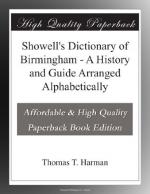1834, Oct. 7 to 10. President, the Earl of Aylesford. This being the first Festival held in the Town Hall it may be noted that the prices of admission were for the morning performances, 21/-for reserved and 10/6 unreserved seats; in the evening, 15/- and 8/-; at the Theatre, boxes and pit, 15/-, gallery, 7/-; ball on Friday, 10/6. There were 14 principal vocalists, 33 in the semi-chorus, 187 in the full chorus, 147 instrumental performers, 2 conductors, 2 organists, and 1 pianist. Besides the “Messiah,” there was the new oratorio, “David,” by Nerkomm (the first that was originally composed for our Festivals), selections from the same author’s “Mount Sinai,” from Spohr’s “Last Judgment,” from Handel’s “Israel in Egypt,” and an arrangement of Hummel’s “Motet,” &c. This was the first introduction to the Festivals of Miss Clara Novello (afterwards Countess Gigliucci), Madame Stockhausen and her husband (harpist), Ignaz Moscheles, Mr. William Machin (a townsman), Miss Aston and Miss Bate (both Birmingham ladies), Mr. George Hollins (the first appointed Town Hall organist), and others. Receipts, L13,527; profits, L4,035.
1837, Sept. 19 to 22. President, Lord Willoughby de Broke. Mendelssohn’s new oratorio, “St. Paul” (oft mistakenly supposed to have been specially written for the occasion), was the most important production, but Neukomm’s “Ascension,” Haeser’s “Triumph of Faith,” and several other new compositions were performed on this occasion. In addition to Mendelssohn’s first appearance here as conductor, there were other new faces, among them being Madame Giula Grisi, Madame Emma Albertazzi, Mrs. Albert Shaw, Signor Antonio Tamburini, Mr. Alfred Mellon (in his 17th year, but even then leader of the band at the Theatre), Signor Regondi (concertina player), &c. Receipts, L11,900, but, as besides more than usually heavy expenses, L1,200 was paid for building the recess in which the organ was placed, the profits were only L2,776.
1840, Sept. 22 to 25. President, Lord Leigh. The oratorio, “Israel in Egypt,” by Handel, selections from his “Jephtha,” and “Joshua,” and Mendelssohn’s “Hymn of Praise,” were the great features of this Festival, at which appeared for the first time Madame Dorus-Gras, Miss M.B. Hawes, Signor Louis Lablache, with Mr. T. Cooke, and Mr. H.G. Blagrove (two clever violinists). Receipts, L11,613; profits, L4,503.
1843, Sept. 19 to 22. President, Earl Craven. The performances at the Town Hall included Handel’s oratorio, “Deborah,” Dr. Crotch’s “Palestine,” and Rossini’s “Stabat Mater,” the introduction of the latter causing a considerable flutter among some of the local clergy, one of whom described it as the most idolatrous and anti-Christian composition that could be met with. The Theatre this year was used for three evening concerts, &c. Among the new vocalists were Miss Rainforth, Signor Mario, Signer Fornasari, and Mr. Manvers. The organists were Dr. Samuel Sebastian Wesley and our Mr. James Stimpson, who had succeeded Mr. George Hollins as Town Hall organist in the previous year. Receipts, L8,822; profits, L2,916.




